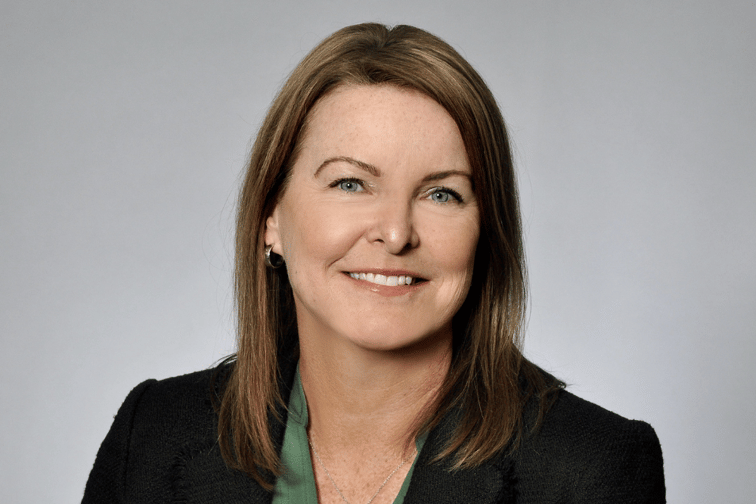

This article was produced in partnership with Crawford & Company Canada .
Desmond Devoy, of Insurance Business Canada, sat down with Kelly Stevens, senior vice president, loss adjusting, Crawford & Company Canada, to discuss how by using its proprietary technology, and by harnessing the power of partner companies, it is able to provide customers with more data.
Crawford & Company Canada is focusing on continual improvement in how it does business.
This means significantly expanding how technology is used and reaching out to third party partners to make this change a reality.
“We are looking at continually improving our processes and leveraging the technologies that we have available to make our workflows more streamlined, efficient, and provide better service,” said Kelly Stevens (pictured), senior vice president, loss adjusting, during a recent interview.
Crawford’s modus operandi is Technology + People. Operating in this way, Crawford is able to solve some the most challenging and complex claims scenarios for its clients by seamlessly combining innovation and expertise.
Underpinning this, as Stevens explained, is a commitment to maintaining the highest levels of operational excellence. In many ways, this is what drives her company forward, as it supports a culture dedicated to continuous improvement and always reaching higher and further for clients.
This includes embracing technological advances and fostering collaboration.
It also involves engaging with stakeholders internally and externally, about the efficiency of a product, and how it can be made better, faster, and cheaper, all with exceptional service.
Crawford has evolved at a phenomenal pace in recent years. Take the data-driven environment in which its adjusters now operate, with dashboards delivering the latest in claims information, and machine-learning augmenting expertise. And that’s just the tip of the iceberg.
The tweaks are constant, and always with questions in mind like if the new tool or behaviour is fostering the right behaviour, the right information, and so on.
Stevens pointed out that any changes are at their most meaningful when they are felt by all customers and stakeholders including brokers, policyholders and insurer carriers.
“The goal, at the end of the day, is to have our work product and value added to the claims journey experienced and felt by all stakeholders as a positive one,” Stevens said.
One of the technological changes that is already in the works is automation, like using bots to automate repetitive tasks that were once done manually, such as sending out invoices electronically and exploring straight-through processing of straightforward claims.
This frees up Crawford’s adjusting team so they can apply the personal touch when needed with customer service, making sure they are available to have meaningful conversations with policyholders at key moments in the lifecycle of a claim.
There is also a significant change in Crawford’s national property workflow.
“We’ve streamlined and mapped the life of a property claim and we’ve injected areas where technology should be used by our adjusters to expedite the claim,” Stevens said.
One of the firm’s external partners is a company called Hover, which helps it record external damage to a property, from, say, hail or windstorm. Using Hover’s technology, adjusters can go to the scene and take a series of photos of the property, and the tech will produce an estimate of the damage without having adjusters get too close to the property or put themselves in harm’s way.
Another technology the firm is utilizing, powered by a partner, is Matterport. While its interior video capabilities is often used in the real estate world, it is utilized by Crawford to capture the scope of interior damage to a property, and quantify loss, which has proven beneficial when reporting to an examiner. It allows multiple people to sit in on a call and literally walk through a loss together, via video, and assess the scope and scale of damage.
In addition, Crawford is using its own proprietary technology, Asservio, a stand-alone SaaS offering. Part of Crawford’s national property workflow, it is a drag-and-drop software where adjusters can take a contractor estimate and, within seconds, begin a review process to ensure it is accurate. It gives a quality score and shows deviations.
“It allows for technical conversations with the contractor to ensure that estimate is accurate,” said Stevens. “The benefit of that is that it saves time and money on adjusters attempting to re-inspect a loss for the contractor.”
Crawford has the benefit of being a global company, operating in more than 70 countries with more than 10,000 employees, giving it a large trove of data and the ability to have a deep, analytical approach that sets it apart from the competition.
This information comes to life in stewardship reports, which give Crawford’s clients access to customized data, and lets them see data-driven trends, so they can help identify risk mitigation tactics or tools.
Stevens hastened to add that, as a publicly traded global company, full regulatory compliance is always front-of-mind, with complete attestations and due diligence.
“We’re doing all this with the customer in mind,” she said. “Everything we’re doing puts the customer in the middle. We have a customer-centric approach…and have a mandate to be responsive, add value, and provide timely and critical updates to our clients.”
